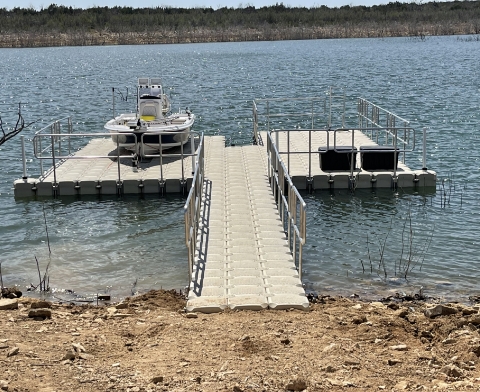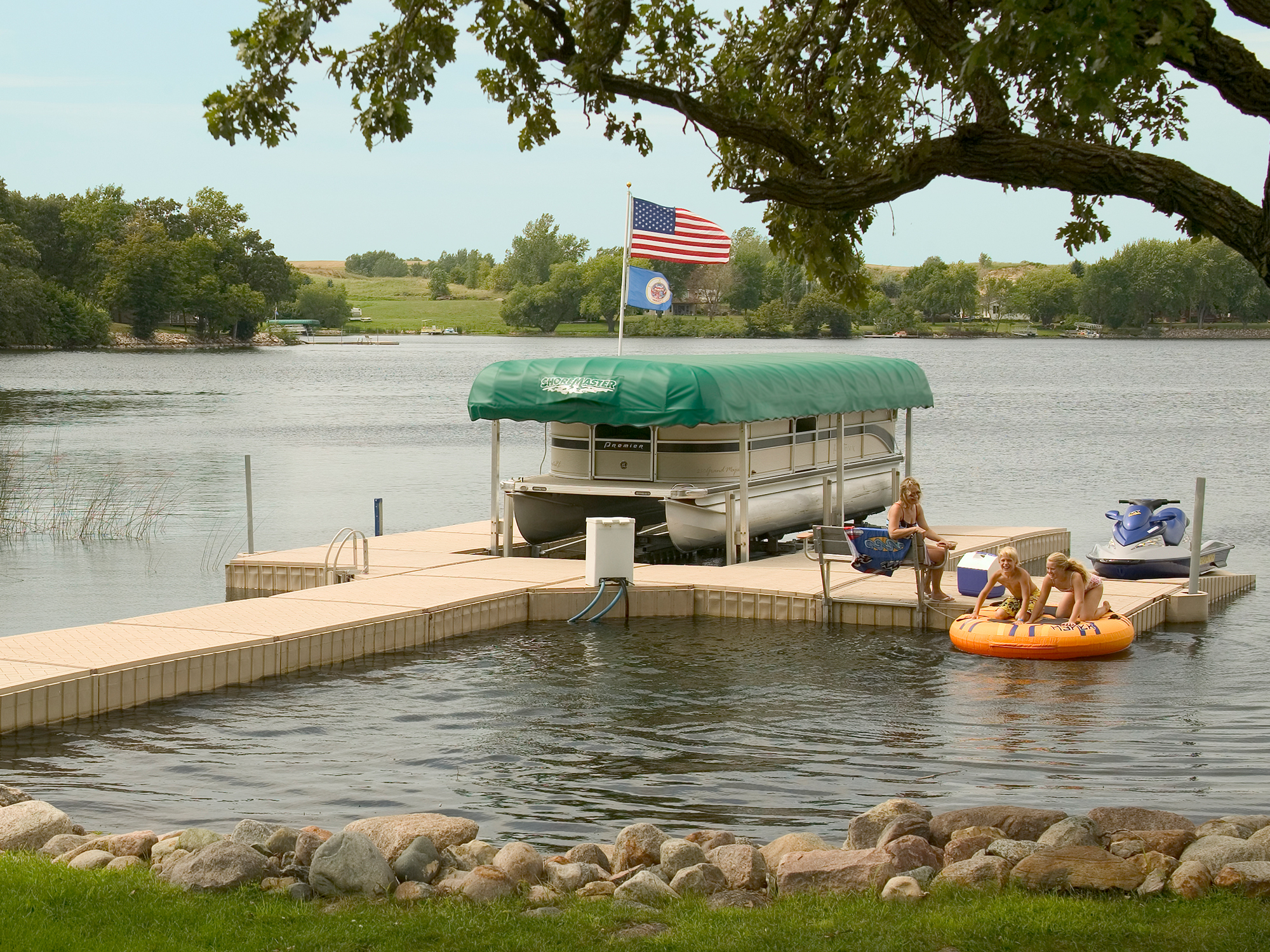Advantages of Collaborating With a Developed Floating Dock Company for Assurance
Advantages of Collaborating With a Developed Floating Dock Company for Assurance
Blog Article
Floating Docks: The Suitable Option for Versatile Water Access
Floating docks existing a compelling service for a selection of water gain access to requires, providing flexibility that transcends traditional mooring alternatives. The modular nature of floating docks assists in customization, catering to certain requirements.
Benefits of Floating Docks
Floating docks deal countless benefits that improve water accessibility for various applications. Their capability to climb and drop with changing water degrees makes them especially advantageous in environments with fluctuating trends or seasonal variants. This versatility guarantees that vessels can conveniently moor without concern for the water's deepness, providing a reliable platform for leisure, industrial, and commercial usages.
Additionally, floating docks are usually built from durable materials that resist rust, making them suitable for lasting use in aquatic environments. Their setup is generally less intrusive than typical fixed docks, reducing the ecological influence and assisting in quicker deployment (dock company). This adaptability permits for less complicated moving or reconfiguration according to customer requirements or environmental modifications
Safety is another essential advantage; floating docks can give stable access for people disembarking or boarding from boats and reduce the risk of mishaps connected with unstable surface areas. Furthermore, they can be made to suit a range of accessories, such as cleats and fenders, boosting functionality. Overall, floating docks represent an efficient option for enhancing water access across diverse sectors while advertising safety and ecological sustainability.

Sorts Of Floating Docks
Numerous kinds of floating docks satisfy various demands and environments, each made with certain functions to optimize capability. One of the most typical kinds consist of modular docks, which include interlacing areas that permit easy customization and expansion. These docks are excellent for entertainment usage, as they can be tailored to fit numerous watercraft sizes and water problems.
Another prominent choice is the stationary floating dock, which continues to be secured in location yet floats with altering water levels. dock company. This kind is particularly suited for locations with marginal tidal changes, providing steady access for angling or swimming. Furthermore, there are drive-on docks, which feature a sloped style that allows watercrafts to easily drive on and off, making them suitable for individual boat and smaller sized vessels
For business applications, sturdy floating docks are available, created from strengthened products to stand up to considerable loads and extreme aquatic environments. Environmentally friendly floating docks utilize lasting materials and designs to lessen environmental effect, frequently integrating features like greenery to sustain local wildlife. Recognizing the numerous kinds of floating docks ensures that users can pick one of the most suitable option for their certain demands.
Setup Refine Introduction
An effective installation of floating docks calls for cautious preparation and focus to information to guarantee optimum efficiency and safety and security. The preliminary step includes assessing the website conditions, consisting of water deepness, present, and possible challenges. This evaluation informs the selection of the proper dock products and design customized to the certain setting.
Following, getting needed permits is vital, as lots of territories have policies regarding building on water bodies. The installation can continue once permissions are secured. Begin by preparing the foundation, which might include anchoring systems or pilings customized to the dock kind and local problems.
Adhering to the structure setup, set up the dock areas according to supplier specs. Make sure that all elements are securely secured and straightened to stand up to environmental stresses. Setting the dock in the designated location, ensuring it is degree and stable.

Maintenance Tips and Finest Practices
After the installation procedure is complete, recurring upkeep plays an essential role in guaranteeing the longevity and functionality of floating docks. Regular assessments must be carried out to identify any type of indications of damages, wear, or wear and tear - floating dock builder. Look for any type of loose installations, cracks, or separation in the dock directory sections, as these can endanger structural stability
Cleansing the dock is crucial to remove debris, algae, and various other accumulation that can impact its appearance and safety and security. Use a mild stress wash periodically to maintain tidiness without creating damage to the surface. In addition, using a safety sealant every few years can aid boost long life and stand up to environmental wear.
Take notice of the mooring lines and anchors, ensuring they are protected and cost-free from deterioration. Change any abject parts without delay to prevent dangers. Seasonal changes may likewise be necessary; throughout extreme weather problems, reinforcing the dock or repositioning can avoid damages.
Applications for Floating Docks
Floating docks serve a wide range of applications, catering to both leisure and commercial needs. In leisure settings, they offer smooth access to rivers for activities such as boating, angling, and swimming. Their flexible nature permits installment in differing water degrees, ensuring steady and secure access no matter of tidal fluctuations.
Readily, floating docks are vital for marinas and waterfront companies. They facilitate the docking of vessels, making it possible for effective discharging and packing of products. Their modular design enables for very easy development or reconfiguration to accommodate changing business needs, making them perfect for boat rentals, excursion operations, or angling charters.
In addition, floating docks are utilized in ecological applications such as water research study and environment remediation. They can serve as systems for clinical researches, checking water quality, or carrying out wildlife surveys without disturbing sensitive ecosystems.
In industrial contexts, floating docks are utilized in construction jobs, supplying accessibility to hard-to-reach areas for equipment and workers. Their convenience, durability, and minimal effect on the environment make them an optimal option for a wide variety of applications, boosting both capability and ease of access in numerous water-based settings.
Conclusion
In verdict, floating docks stand for an like this optimal remedy for varied water gain access to needs, owing to their adaptability, resilience, and modular layout. These structures assist in risk-free mooring for numerous applications while lessening ecological influence during setup. The lowered upkeep demands even more improve their practicality. As such, floating docks serve as a useful possession for leisure, commercial, and environmental tasks, making certain click resources trusted access to rivers and advertising lasting techniques in aquatic environments.
Floating docks existing an engaging solution for a range of water gain access to requires, supplying versatility that transcends standard mooring alternatives.Floating docks deal numerous benefits that boost water accessibility for numerous applications. Generally, floating docks stand for an efficient remedy for boosting water access throughout diverse markets while promoting safety and security and environmental sustainability.
An additional preferred alternative is the stationary floating dock, which remains anchored in area yet floats with altering water degrees.In verdict, floating docks represent an optimal remedy for varied water access needs, owing to their flexibility, sturdiness, and modular design.
Report this page